Weeding is one of the most time-consuming parts of gardening—but what if your plants could do the job for you? Some vegetables naturally grow with dense foliage, sprawling habits, or fast ground coverage, making them excellent at shading out weeds before they take hold.
These weed-fighting crops don’t just reduce maintenance—they also help conserve soil moisture, prevent erosion, and create a healthier growing environment for your garden. With smart planning, you can build a veggie patch that’s both productive and low-maintenance.
In this article, we’ll highlight 16 vegetables that choke out weeds naturally, so you can spend less time pulling and more time harvesting.
Zucchini
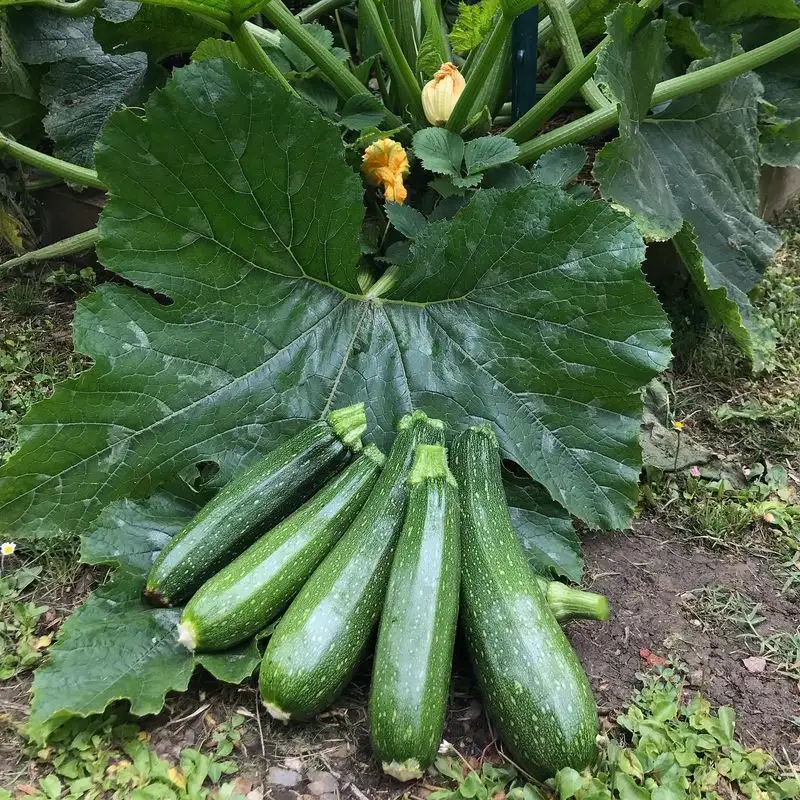
Known for its broad, large leaves, zucchini can quickly take over garden space, leaving little room for weeds to thrive. Its rapid growth and sprawling nature make it a formidable opponent against unwanted garden guests. Often, gardeners appreciate zucchini not just for its culinary uses, but also for its ability to protect the soil. Plant it early in the season to ensure it gets a head start over potential weeds. Consider placing it in areas prone to weed growth for maximum effect. Watch it bloom and thrive, creating a natural barrier against invasive plants.
Pumpkin
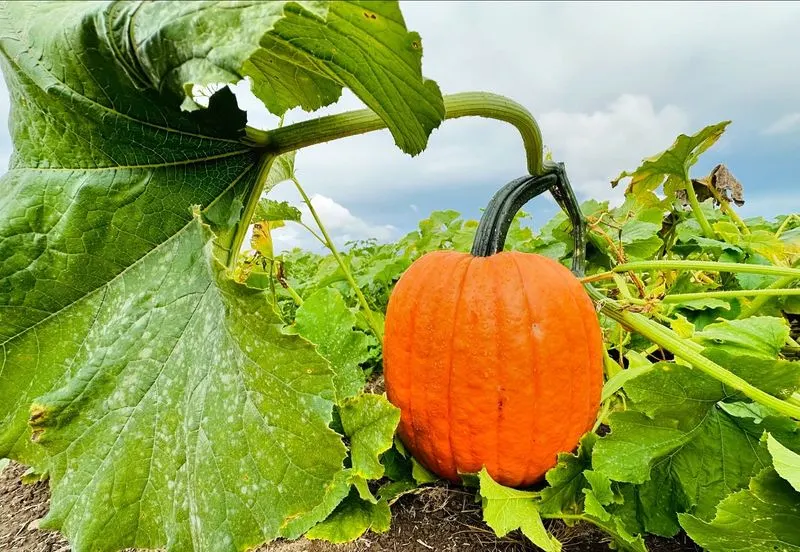
Pumpkins are known for more than just their Halloween appeal. With long, trailing vines and broad leaves, they efficiently cover ground and suppress weed growth. The dense foliage creates shade, preventing light from reaching the soil, which weeds need to sprout. As they mature, pumpkins provide a dual benefit of delicious produce and natural weed control. Plant them in ample space to allow their vines to spread and conquer. Their presence in a garden is both visually appealing and functionally beneficial, making them a gardener’s ally in weed management.
Sweet Potatoes

Sweet potatoes are more than just a delicious root vegetable; their vigorous vines and dense foliage can quickly cover significant ground. This coverage helps to smother weeds by blocking sunlight and access to the soil. Ideal for warm climates, sweet potatoes thrive in sunny spots, turning them into a beautiful green carpet. Gardeners often choose sweet potatoes for their ability to efficiently suppress weeds and provide a bountiful harvest. Planted once, they require little maintenance, making them perfect for those who prefer a low-effort garden solution.
Beans
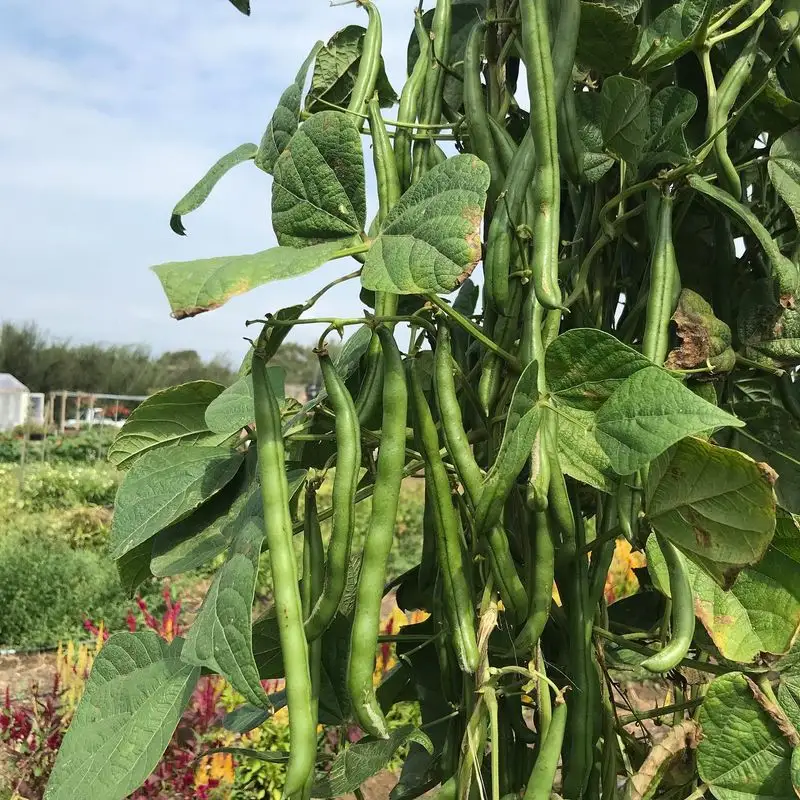
Beans, whether bush or pole, are outstanding at outcompeting weeds. Pole beans, in particular, can climb and spread, creating a thick wall of greenery. This dense foliage shades the soil, impeding weed growth. Additionally, beans are nitrogen-fixers, enriching the soil and benefiting neighboring plants. Their quick growth and minimal requirements make them a staple in gardens aimed at reducing weeds. Incorporating beans into your garden design can lead to healthier soil and fewer weeds, all while providing a steady source of delicious beans throughout the growing season.
Squash
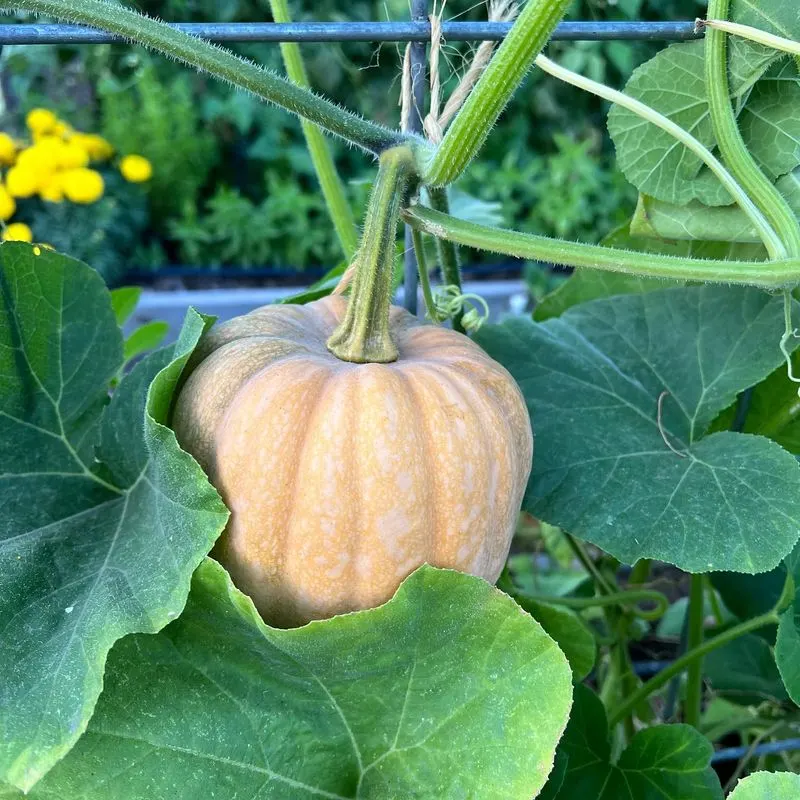
Squash plants are champions in the battle against weeds, thanks to their sprawling growth habit. The broad leaves and low-growing nature of squash effectively shade the soil, minimizing weed emergence. As they flourish, squash plants form a natural cover, suppressing weeds with ease. Gardeners value squash for its dual purpose of providing nutritious produce and maintaining a tidy garden bed. Plant squash in areas where weed control is challenging for an effortless solution. As they grow, these plants create a living mulch that both conserves moisture and subdues weeds.
Kale
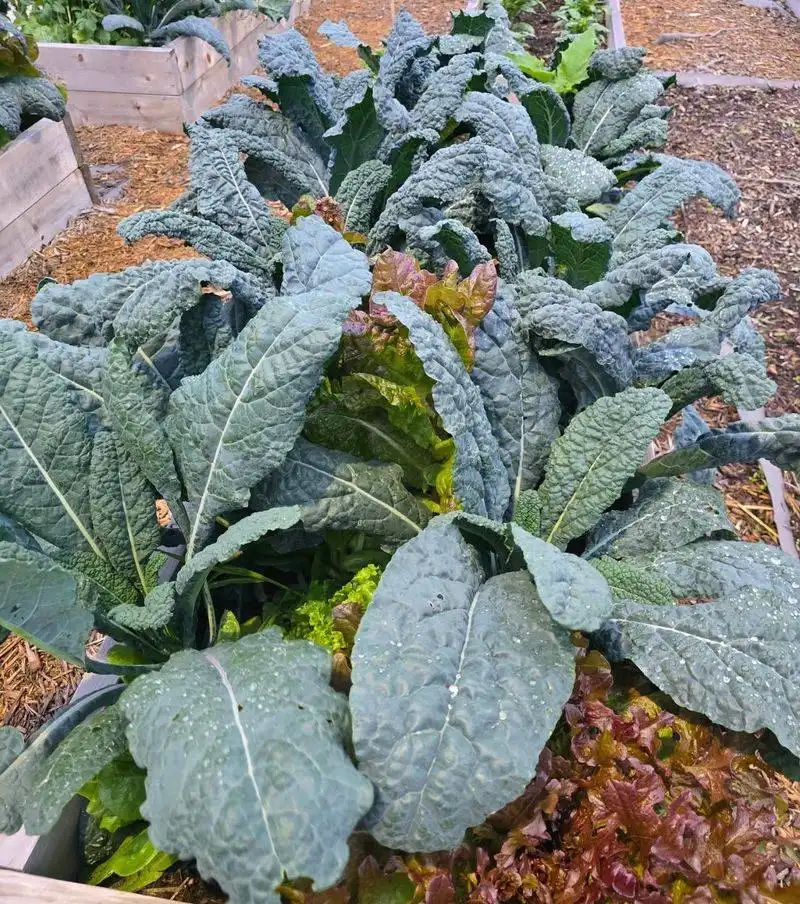
Kale is not just a nutrient powerhouse; it’s also a garden protector. With leaves that spread wide, kale dominates garden space, leaving little room for pesky weeds.
Its robust growth cycle ensures that once planted, it quickly establishes itself, overshadowing potential weed intruders.
Whether it’s baby kale or the mature variety, this leafy green acts as a natural mulch. Kale’s ability to thrive in various climates makes it a versatile choice for gardeners looking to keep their plots weed-free while enjoying its health benefits. Truly a gardener’s ally!
Asparagus
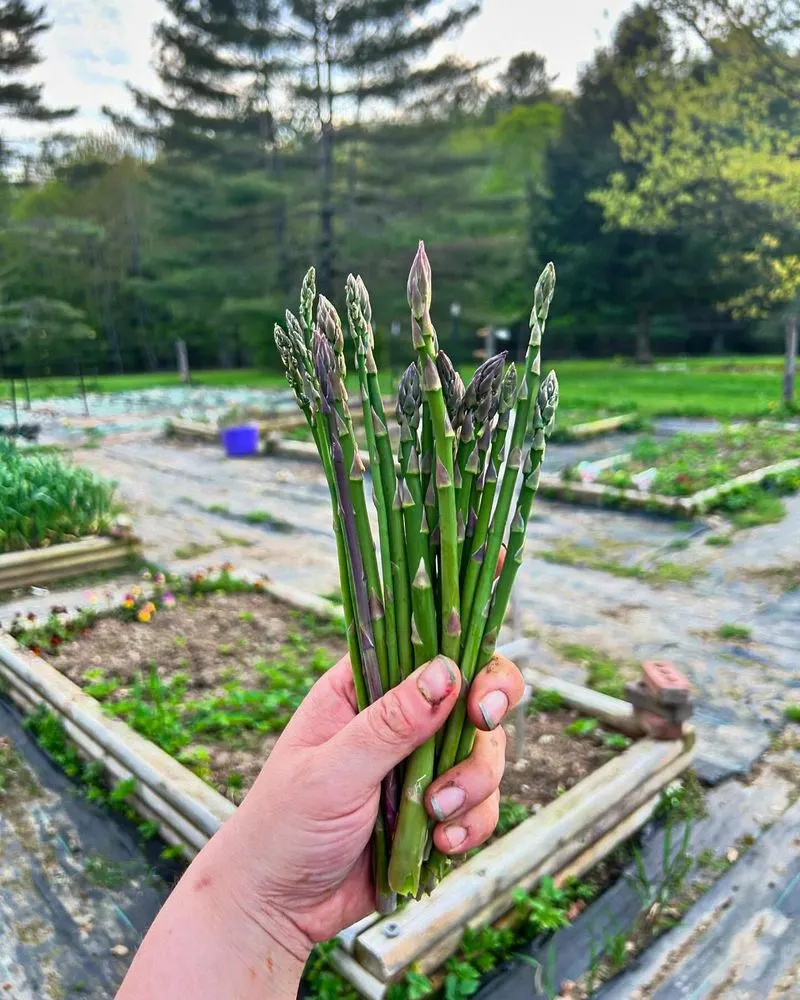
Emerging from the earth like green spears, asparagus not only provides a gourmet delight but also excels in weed suppression. Asparagus roots spread extensively underground, creating a dense mat that chokes out weeds.
The yearly cutting back of asparagus ferns adds nutrients to the soil, further discouraging weed growth.
Its perennial nature means once established, asparagus returns year after year, offering gardeners a long-term solution to pesky garden invaders. With minimal maintenance, it stands as a sentinel of the garden, protecting all within its domain.
Rhubarb
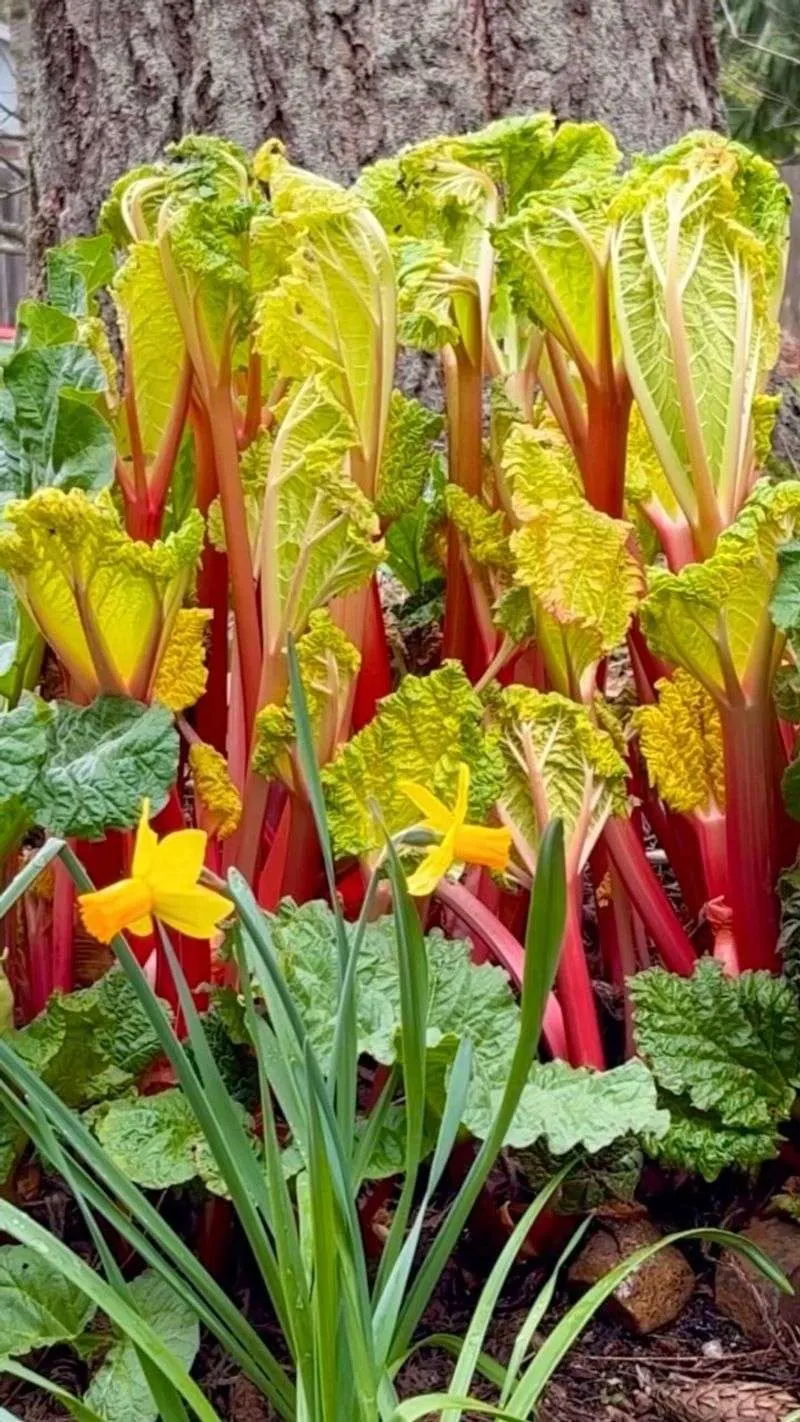
Rhubarb brings more than its tangy taste to the table. Its broad, umbrella-like leaves provide substantial coverage, effectively shading out weeds that attempt to compete for sunlight.
Rhubarb’s deep root system also plays a crucial role in weed suppression, as it occupies the space weeds often covet.
This perennial plant thrives in cooler climates, casting its protective shadow year after year. Known for its resilience, rhubarb is a stalwart defender against weeds, adding both beauty and function to any garden landscape.
Artichoke
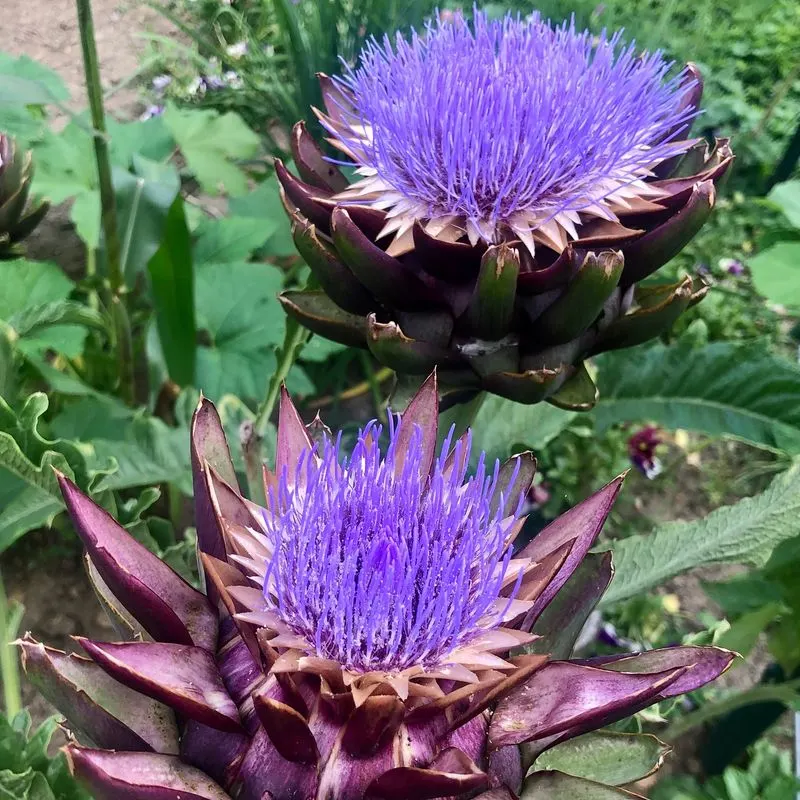
Artichokes are more than a culinary delight; they are weed warriors. Their expansive foliage creates a natural shield, suffocating weeds beneath a canopy of leaves.
The plant’s thistle-like nature deters unwanted pests, while its deep-rooting system prevents weeds from gaining a foothold.
Artichokes thrive in warm climates, and their architectural beauty adds a touch of elegance to any garden. With minimal care, they provide a dual function of beauty and protection, making them a valuable addition to a weed-conscious gardener’s arsenal.
Chard
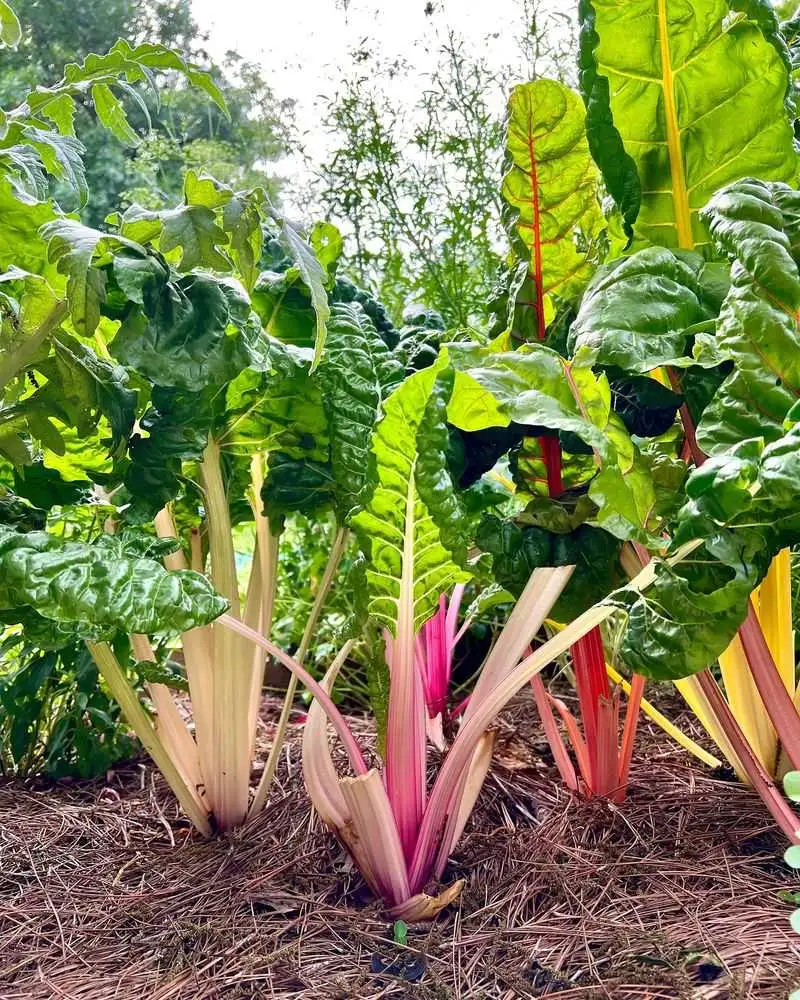
Chard, with its rainbow of stems, is a vibrant addition to the garden and a formidable opponent to weeds. Its large leaves spread generously, denying weeds the sunlight they need to grow.
This leafy green’s rapid growth and adaptability to different soils make it a gardener’s favorite.
Chard’s ability to reseed itself means it can return season after season, providing continuous weed suppression naturally. Not only does it keep the garden weed-free, but it also offers a nutritious addition to the kitchen. A win-win for any gardener!
Cabbage
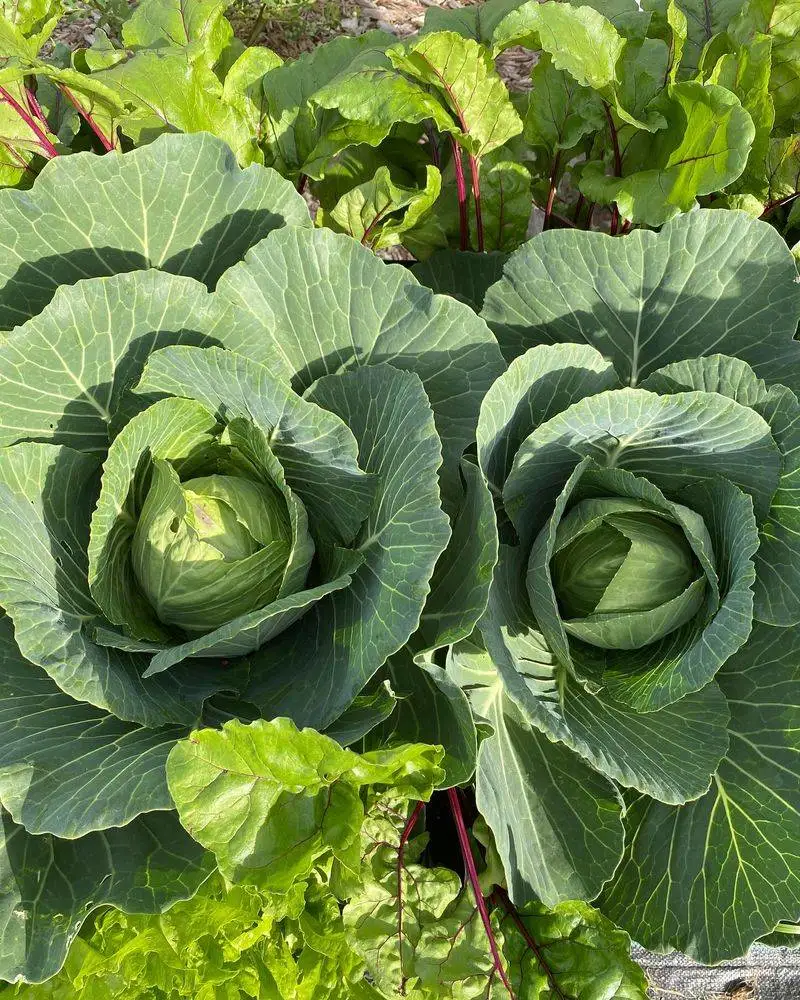
Cabbage, with its dense, leafy heads, serves as a natural weed barrier. Its large leaves overlap, forming a shield that blocks sunlight from reaching weeds below.
The compact growth habit of cabbage ensures that once planted, it quickly establishes a protective presence in the garden.
Cabbage thrives in cooler climates and is known for its resilience against various garden pests. This makes it an excellent choice for those looking to minimize weed growth while enjoying a hearty vegetable in their meals. Truly, cabbage is a multi-functional garden companion.
Brussels Sprouts
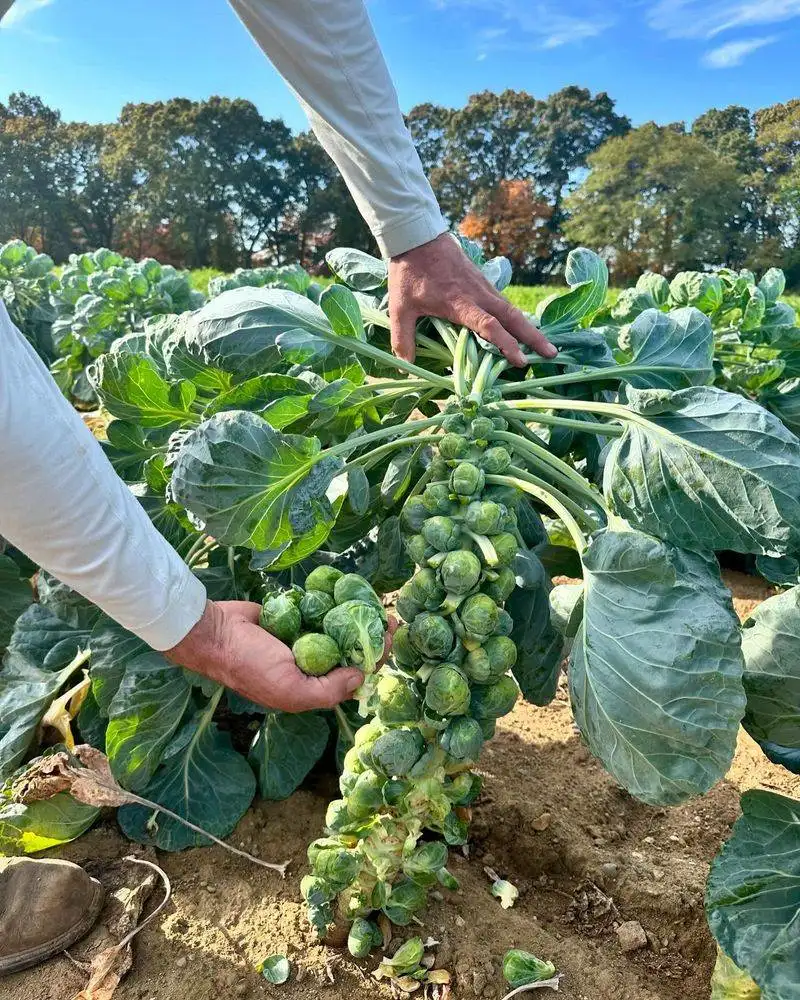
Brussels sprouts bring more than their unique taste to the garden table. Their tall, stately stalks and lush leaves create an effective barrier against weeds.
As the plants grow, they offer dense coverage, depriving weeds of essential sunlight.
The longevity of Brussels sprouts, thriving well into fall, ensures a prolonged period of weed suppression. Known for their resilience and ability to withstand cooler temperatures, they are a fantastic addition to any garden aiming to reduce weed invasion naturally.
Leeks
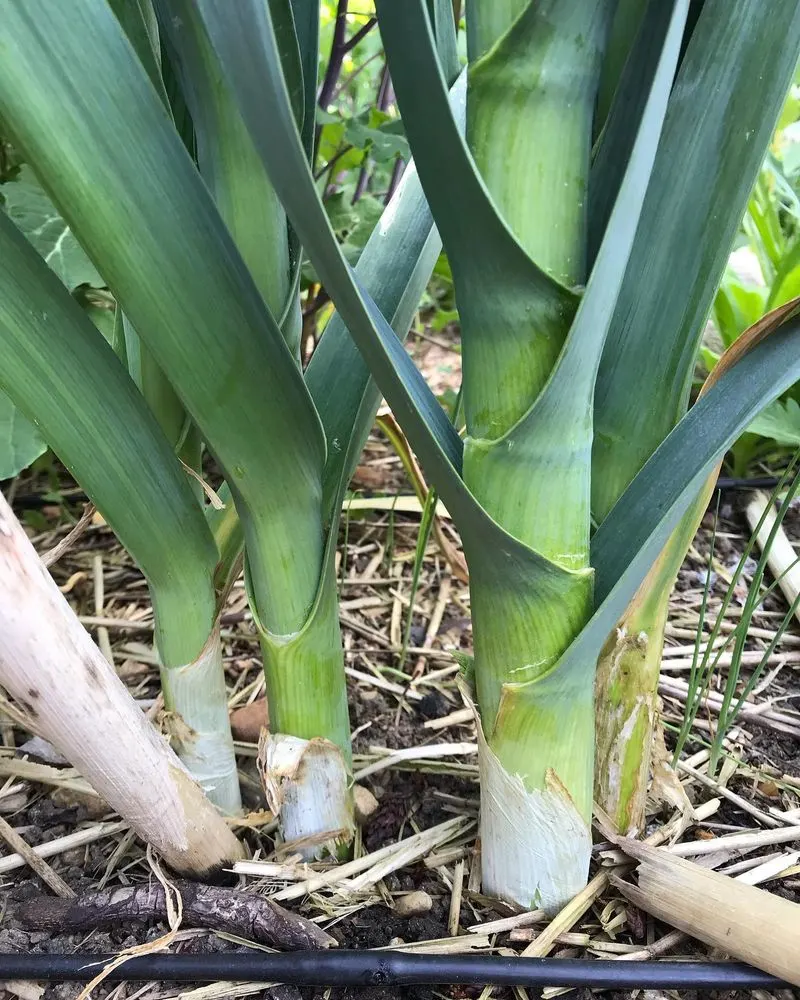
Leeks, with their subtle onion flavor, provide more than culinary value. Their tall, slender stature acts as a natural competitor against weeds.
Leeks’ ability to grow in tight clusters means that they occupy space efficiently, leaving little room for unwanted plants.
As they mature, leeks form a dense mat of foliage, further deterring weeds. Their preference for well-drained soil makes them an excellent choice for gardeners looking to maintain a pristine, weed-free environment while enjoying their mild, delightful taste.
Onions
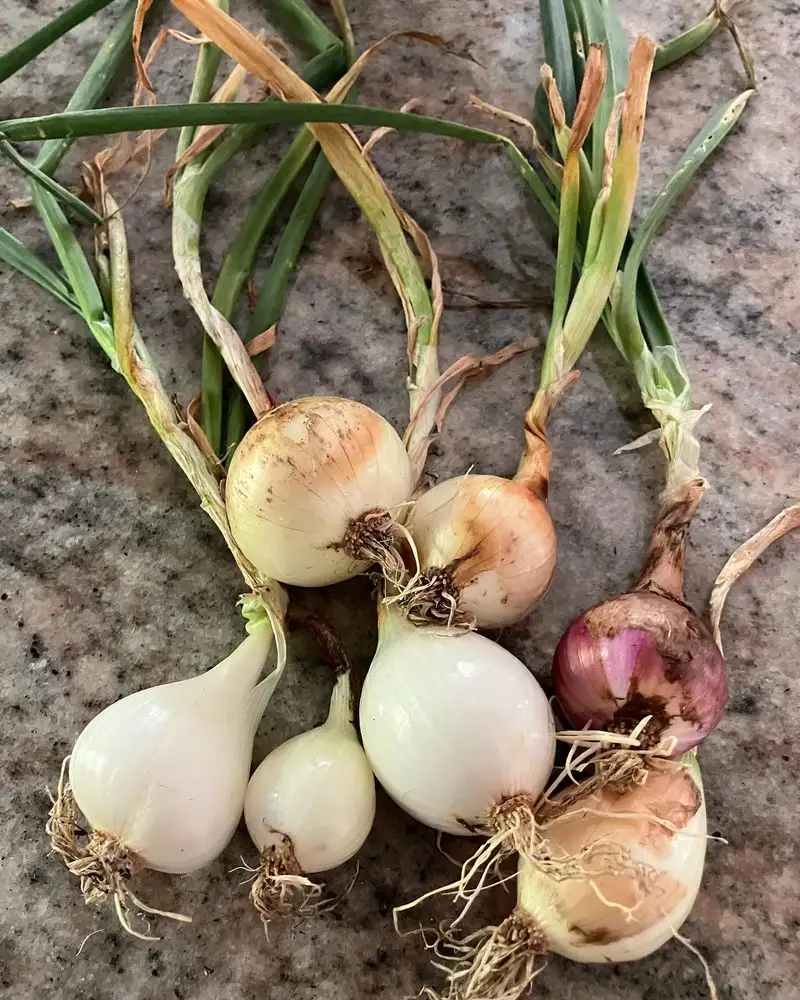
Onions stand as a testament to simplicity and effectiveness in weed control. Their underground bulbs and above-ground greens create a dual-layered defense against weeds.
Rows of onions, when planted closely, form a natural barrier that prevents sunlight from nurturing weeds.
Their strong aroma also acts as a deterrent to certain garden pests, adding an additional layer of protection. Versatile and requiring minimal care, onions are a staple in any garden looking to achieve a harmonious balance between productivity and maintenance.
Turnips
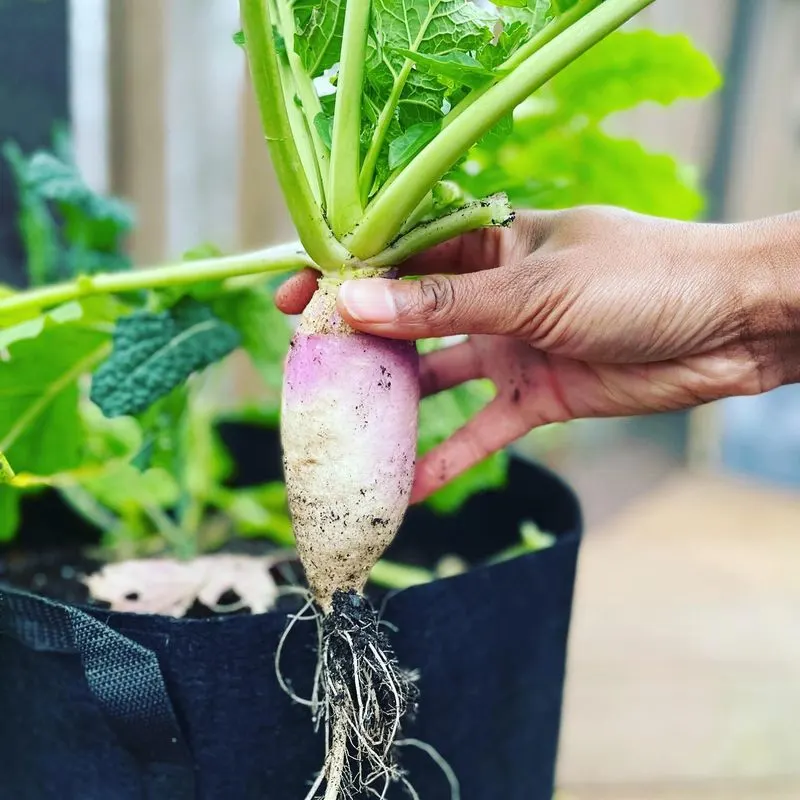
Turnips, often celebrated for their flavorful roots, are equally adept at managing garden weeds. Their quick growth cycle and expansive leaves cover soil rapidly, outcompeting weeds for light.
The robust nature of turnips allows them to thrive in a variety of soils, making them an adaptable choice for gardeners.
Their ability to reseed ensures that they return season after season, providing consistent weed suppression. Turnips not only enhance the garden with their presence but also contribute to the kitchen as a nutritious vegetable. A gardener’s delight!
Fennel
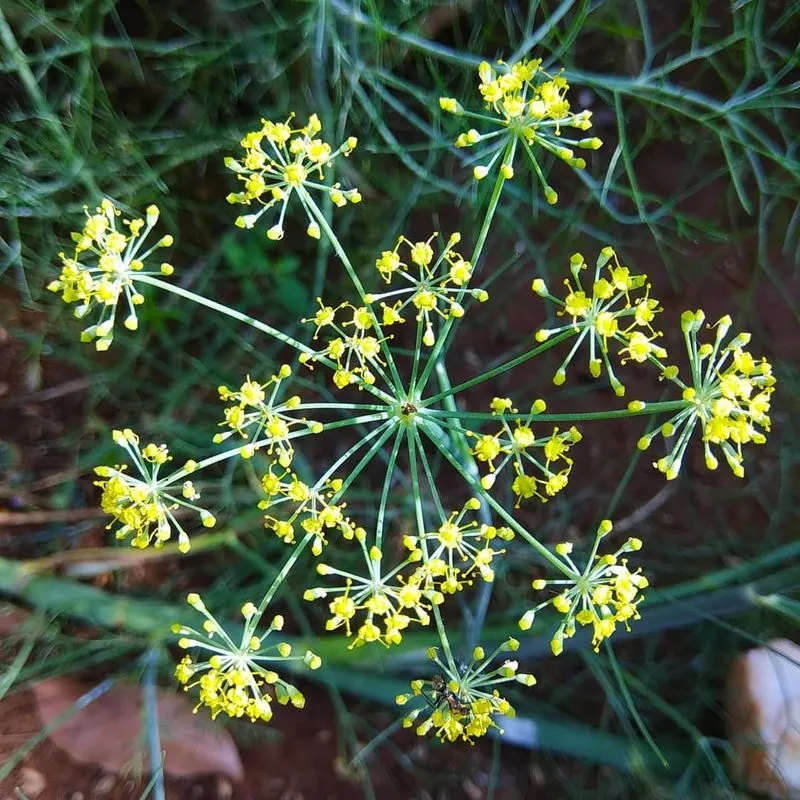
Fennel’s unique anise-flavored bulb is just one of its many attractions. Its feathery leaves reach out, casting a fine shade over the ground, disrupting weed growth.
This plant’s ability to thrive in poorer soils makes it a resilient choice for those looking to maintain a low-maintenance, weed-free garden.
Fennel’s self-seeding nature ensures that it returns annually, providing ongoing protection against weeds. Its striking appearance and culinary versatility make fennel a favorite among gardeners and chefs alike, offering both form and function.

